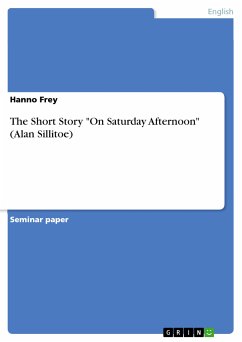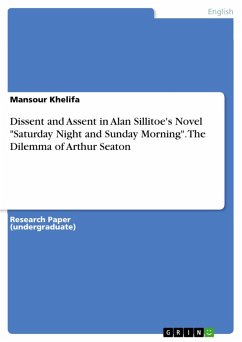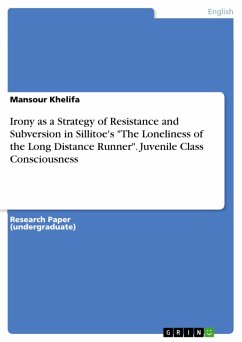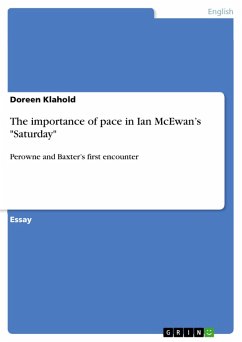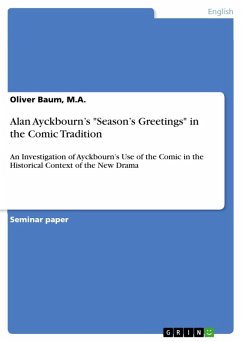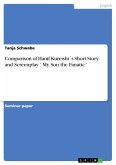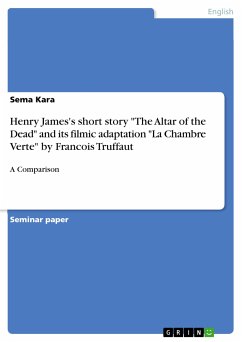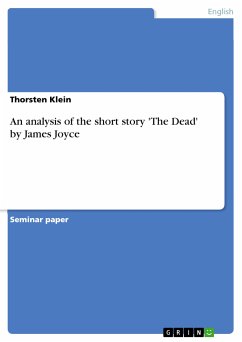Seminar paper from the year 2000 in the subject English Language and Literature Studies - Literature, grade: 1,7 (A-), University of Hamburg (Anglistics Seminar), course: Seminar 1b, language: English, abstract: The Short Story „On Saturday Afternoon“ by Alan Sillitoe is a highly complex piece of literature. It does not merely represent the description of the experiences the narrator has made on one Saturday afternoon but it contains far more: It implies information about the social system the speaker lives in, his family background and his psychology. It would therefore not be very appropriate to make use of only one of the approaches that have so far been developed in order to interpret literature. Thus, in the case of this story it is not the question whether the reader “should” relate the author’s biography to the text, consider its intertextuality or try to interpret the text on the basis of its words alone1. For some stories it may be possible to pose and answer this question clearly, but with respect to „On Saturday Afternoon“ it is not. Here a „mixture“ of different methods offers the best access to the text because it covers more aspects of the story than one single approach does. Consequently, in this term paper I am going to deal with the Short Story “On Saturday Afternoon” by Alan Sillitoe considering the following aspects: The contents of the story, its inner structure and its relation to Sillitoe´s biography and some of his other works. In doing so I am aware of the fact that it is necessary and inevitable only to focus on certain aspects of the approaches - as the scope of this term paper is restricted- and therefore it is impossible to develop an interpretation which covers every aspect each one of these methods offers. Nevertheless I am convinced that the way I have chosen gains by the interplay of the accesses what it lacks from completeness.

